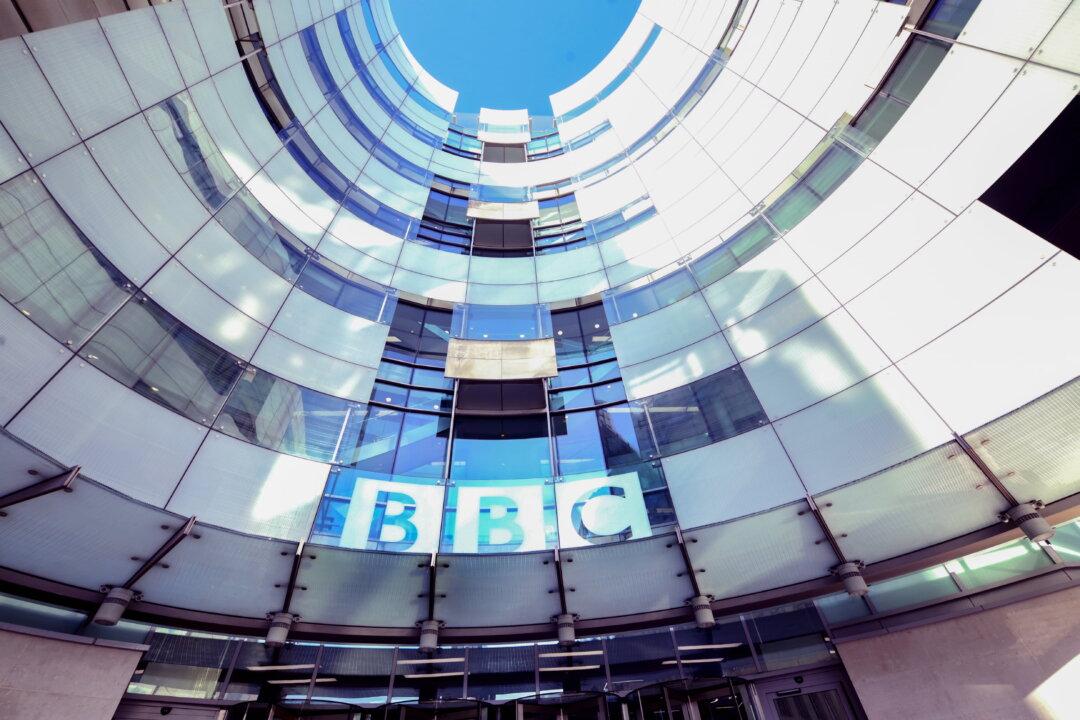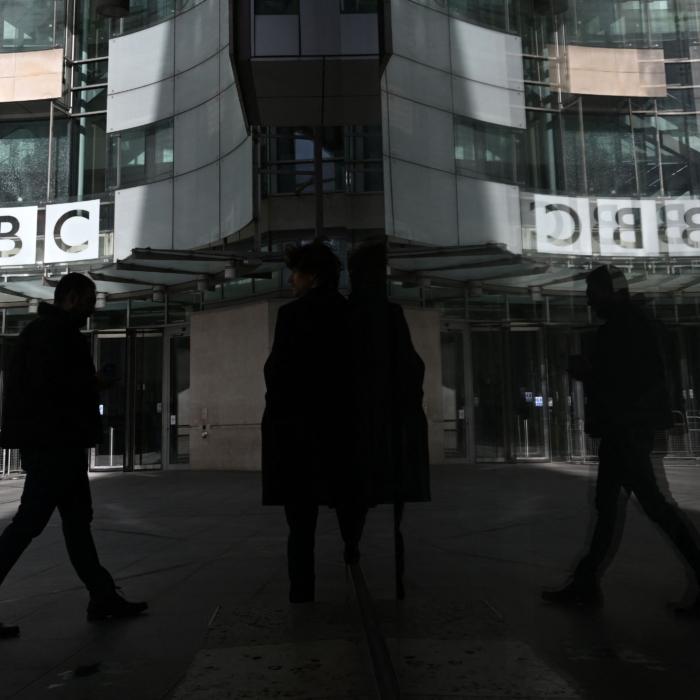The Tories have missed its only opportunity to reform the state broadcaster, according to a former top BBC reporter, who called the plans “feeble.”
Following the first Mid-Term Review, Culture Secretary Lucy Frazer recommended reforms to increase audience confidence in the BBC and its complaints system.
However a top journalist who spent 25 years at the BBC and now says that the public broadcaster is no longer impartial, told The Epoch Times that he believes the reforms are a “lost opportunity.”
For example, he accused the BBC of “successfully propagandised the country from the perspective of Black Lives Matter [BLM]” after the killing of George Floyd, “never bothering to investigate” BLM’s “antecedents and real motives” as a Marxist organisation.

‘Complaints Process’
The government said that audiences will be “given greater certainty” that their complaints about BBC TV, radio, and on-demand content—including concerns about bias—are dealt with fairly through greater scrutiny of its complaints process.The reforms mean that communications regulator Ofcom may get more powers over the BBC’s online services where the broadcaster has editorial control, including the BBC News website and the BBC’s YouTube channel.
“It’s a very feeble step [...] I don’t think these changes are going to make a substantial impact on the way complaints are handled,” Mr. Aitken told The Epoch Times.
“I think the BBC will sail along perfectly happy. They'll be very happy with this announcement yesterday because it does nothing to disturb the essential core culture of the BBC,” he said.
“We can reconcile ourselves to a BBC which is going to look very much as the BBC has done over the past ten years,” he said.
Mr. Aitken said that he understood that the midterm review was set up by ministerial fiat, which meant that under such terms, nothing could be imposed on the BBC that it didn’t agree to in negotiations with the Department for Culture, Media and Sport.
He also said that “lot of people who work at Ofcom have been schooled in a BBC worldview and carry that with them into their job at the communications regulator.”
His solution would be “a gold standard of complaints mechanism” that would include an independent panel comprised of people who would come from “outside the BBC culture and would look fairly at complaints.”
“Then you might see some real change might see the BBC coming under heavy, heavy scrutiny and heavy pressure to change its ways. It’s a lost opportunity again, and given the political landscape with the likelihood of a Labour Government this year at some point, the BBC is off the hook I think,” he added.
Dominic Cummings
Mr. Aitken pointed to comments published by former prime minister Boris Johnson’s advisor Dominic Cummings in the early noughties on the BBC.
“He said that one of the first priorities should be BBC reform because he said that the BBC is inimical in it stands against everything which small C conservatives stand for. He identified the BBC, as a carrier of ideological warfare, opposed to servitors,” said Mr. Aitken.
Mr. Aitken said that the BBC has a “mighty influence on the country” on culture war subjects such as transgenderism, critical race theory, decolonisation, climate change as well as questions of sexual morality.
“These things which are not the bread and butter of daily politics, shape a culture in profound ways. The BBC, in that context, is a hugely important organisation and a very, very influential one,” he said.
On Monday, a BBC spokesperson said “no other organisation takes its commitment to impartiality more seriously” and it has “well-established and detailed plans to sustain and further improve standards.”
An Ofcom spokeswoman told The Epoch Times by email: “Nobody should doubt that Ofcom acts with complete independence, and we apply our rules fairly and equally to all broadcasters. Industry experience is vital to strong regulation and Ofcom has skilled experts from right across the TV and radio sectors.”She added that Ofcom “regularly survey viewers and listeners to understand their needs and expectations.”
A DCMS spokesperson told The Epoch Times by email, “The Mid-Term Review was an opportunity to evaluate the BBC’s governance and regulation halfway through its Charter rather than wholesale change.”
The Epoch Times contacted the BBC and the Conservative Party for comment.







